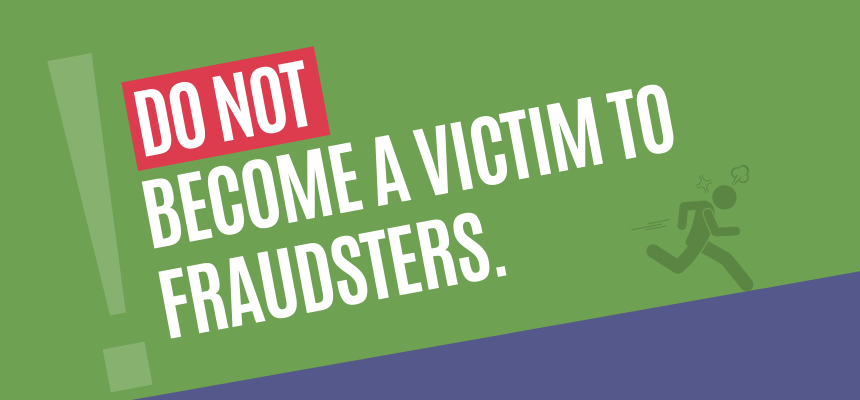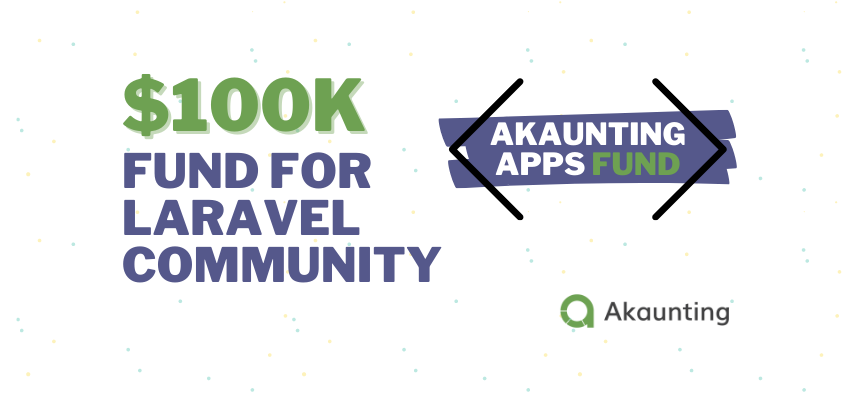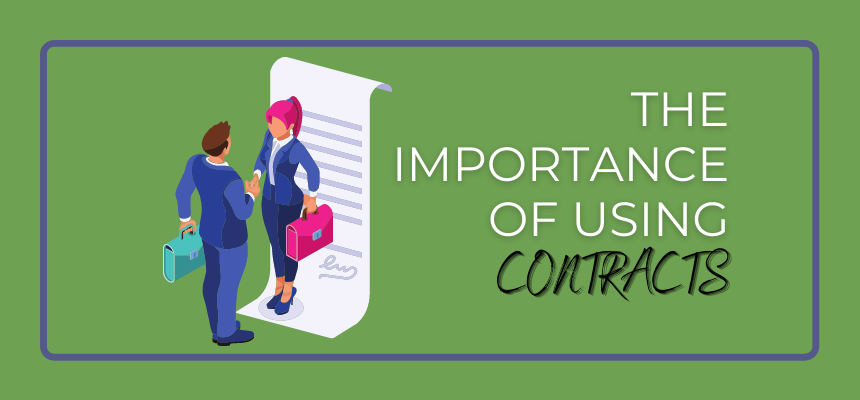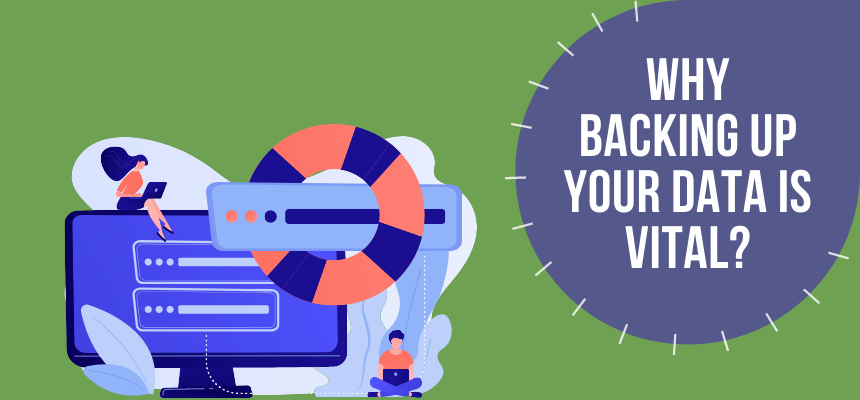How to Avoid Becoming a Victim of Financial Scams and Fraud
Consumers, both online and offline, are being targeted by fraudsters. Whether shopping online, from emails, social media, via telephone, or face-to-face doorstep sales.(1)
In this article, we’ll be looking at how you can avoid becoming a victim of financial scams and fraud of all kinds.
Under Attack
While more and more of us embrace the digital economy, with its ease of use and convenience, the more we become exposed to scams and fraud. But caution is needed as consumer fraud is on the increase in all its forms, both online and offline.
In 2019 a survey was conducted by Ipsos that discovered people were more afraid of “being hacked for fraud/spying purposes” than they were about attacks on their personal safety.(2)
The threat is constant; these criminals never stop and are continually finding new and ingenious ways to steal our money.
In Europe, 12 billion EUR of financial losses were estimated from people falling victim to scams and fraud incurred in 2019. This number is rising year on year.(3)
In the US, 19.7 billion USD were reported as being lost to phone scams alone in 2020.(4)
Connected to Criminals
The growing trend for using mobile phones, tablets, laptops, social media, and mobile apps has been highly beneficial to criminals. The more ways we use to link to our bank accounts, the more cybercriminals can target us.
In 2019, mobile attacks overtook those that used desktop computers. In each subsequent year, the threat grows by 56%, according to LexisNexis.(5)
Financial institutions continually attempt to increase their security measures to prevent fraudsters from stealing money from their clients. The problem is, these unsavory individuals are finding increasingly stealthy ways to crack the systems put in place.
Paying the Price
It is in our nature to want to trust people, and this is what criminals exploit. The price we suffer from an attack is often more than financial. We can be damaged emotionally and psychologically too, effects that can be long-lasting.
Sometimes the money lost is unrecoverable. If the attackers stole our identity, it can also affect credit ratings and take a lot of time and resources to resolve. All these things combined add to the stress and worry caused by such attacks.
Types of Scam
There are various different types of financial scams and fraud used by criminals. Some of these include:
Identity Theft
Stealing Personal Information
Someone posing as a legitimate employee from an organization you actually use (bank, service provider, government department, etc.) contacts you. This could be by email, phone, or even face to face. They ask you to provide specific details to confirm your identity, which could be a copy of your passport, utility bills, or other personal information.
Computer or Software Problems
A person posing as an employee of a large corporation such as Microsoft approaches you by email, phone or other means. You are told that there is a problem with your computer and must give them your personal details in order for them to remedy the issue. This often includes your bank or credit card information. They may tell you they need to take over the operation of your computer remotely to solve the problem, or sometimes will even try and hold you to ransom by saying if you don’t do this, all the information on your computer will be permanently lost. This is not true and is simply a scare tactic.
Monetary Fraud
Money Investment
By investing money into something, you are told you will receive an item, service, rebate, or investment gain. All of which are not true and are simply lures to make you part with your money.
Tickets
You discover some travel, event, or concert tickets online, through an email or from a person selling face-to-face. Once you’ve purchased the tickets, either you don’t receive them, or they turn out to be fake.
Bank Details
Someone contacts you, saying they are a representative of your bank, a service provider, or other legitimate organization. They tell you there is a problem with your account and need to verify your details. If you don’t comply, they often then threaten you in some way.
Competition Win or Inheritance
You receive a notification by email, phone call, letter, or other means, that you’ve won a competition. An alternative to this is that a member of your distant family has died, leaving you some money. In both cases, before you can claim the money, you are asked to pay an administration fee. Of course, there is no money, and you will end up out of pocket.
Medical Treatment Fees
You’re contacted by a person claiming to be from a clinic or hospital where one of your relatives has been taken. You’re told they are sick, or have been involved in an accident. Then you will be told that the person cannot pay their medical fees and asked if you will cover the cost. This is a popular scam at the moment due to Coronavirus.
These are just some of the examples of popular scams, sadly there are many more!
Avoid Becoming A Victim of Financial Scams and Fraud
Using the following safeguards can help protect you from becoming a victim of financial scams and fraud.
Bank Account and Credit Card Checks – Look at the transactions on your bank accounts and credit card statements regularly. Report any suspicious, unknown, or irregular activity directly to your bank immediately.
Information Requests – Never give your full bank details to anyone. If you want businesses or individuals to pay you by direct bank transfer, ensure that they are legitimate first. Then only provide the details they need to complete the transaction. You must never give the information to access any of your bank accounts online – such as your password. Remember that even your bank won’t ask you for this information – ever.
If you think you’ve provided any of your account information to a scammer, tell your bank immediately.
Online Payments – Before making any payments online, first check that the website address (URL) says HTTPS and has a padlock or unbroken key icon at the beginning. Never make online payments if you are using a public Wi-Fi network. This is an easy mistake to make if you’re using a mobile phone.
Personal Information – There are very few instances when you might need to give someone your personal information (passport image, date of birth, place of birth, maiden name, full postal address, etc.) Remember, the more personal information you divulge, the more it can be misused. Protect it carefully and check thoroughly before giving it to a third party.
Social Media – It seems innocent enough to fill out all of your personal details when you sign up for a new social media platform. Remember, however, that this information can be used to create fake identities and target you with specific scams. Also, be aware of what you share in public posts; fraudsters can build up a profile of you over time.
Report It – If you suspect you have been a victim of any kind of fraud attempt, even if the attempt was unsuccessful, report it to the police other bodies concerned. Give as much detailed information as you can.
Real Deal – If somethings seems like an absolute bargain and really too good to be true, then the likelihood is it is! Watch out - you’re being scammed! Don’t fall for it. With a little extra research, you should be able to tell if it’s the real deal or not. Put the product or service into an internet search with the word scam and see what comes up. Check out the company that’s selling and ensure they are legit.
Bank and Credit Card Precautions – Your card details are more valuable to criminals than cash, so protect them! Shield your Personal Identification Number (PIN) whenever you use your card, even if you think no one is looking. Don’t disclose your PIN to anyone, ever. Don’t write it down, but instead commit it to memory and use memory techniques to make it simple to recall.
Virus Software – Keep the software on your PC, phone, or tablet up to date. This is especially important for anti-virus software, your operating system, and web browser as new updates often improve the safeguards to prevent fraud.
Two-Step Verification – Sign up for two-step verification. It may seem like a hassle to have to go through the process every time, but it is well worth the effort to protect you from genuine risks. Look at it this way, do you want to take an extra 20 seconds to log into your online banking app, or do you want to risk someone stealing your information and taking your money?
Document Destruction – Always dispose of any documentation you no longer need to keep, particularly if it shows any of your personal details. Don’t carry this kind of document in your car, wallet, handbag, etc., unless absolutely necessary.
Keep it in Sight – When making a card transaction in a shop, restaurant, bar, club etc., ensure you keep the card in sight at all times. This helps prevent them from being cloned or additional charges being made to them.
Cash Machine Safety – Before using a cash machine, always look at it closely and ensure there are no signs it has been tampered with. Also, check for any extra pieces that might have been added, particularly over the card slot or elsewhere. If you notice anything suspicious, report it immediately. There are various cash machine scams that range from stealing your card to preventing the cash from being taken out. This way it can be stolen by the criminal when you leave.
If someone tries to distract you while you’re using a cash machine, or if you feel they are too close, cancel the transaction and walk away. Hold-ups at cash machines are common. Before you use one, look around to see if anyone is watching you.
Tickets – To prevent yourself from becoming victim to a ticket scam, first check with the venue who the licensed ticket sales sites are and when the tickets will be released for sale. If you find a ticket site online, check it has a physical address and a working landline phone number. Also, ensure there is a refund policy on the website so you can claim your money back if anything goes wrong.
Deposits – Never give upfront cash deposits to tradesmen. Always do a thorough search of the tradesperson first, ask for references and check them out on appropriate licensing bodies and trades associations. Check with family, friends, and neighbors. Don’t be rushed. Always take your time making a decision about using someone's services. If they are putting pressure on you to commit right away – walk away.
Conclusion
There is a myriad of ways we can be taken advantage of and pay dearly, not just financially. Most of the time, with just a little knowledge, thought, and effort, we can stop the criminals in their tracks and ensure we never become a victim of financial scams and fraud.






Comments